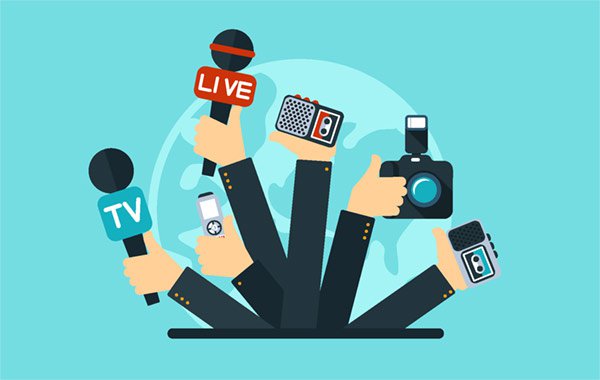
If you hold a professional leadership or communications role, there is a good chance you’ve been called upon by the media to represent your business or organization in an interview. In many cases, you probably sent a release HOPING they’d call. But once you realize YOU are the one who will need to talk into a microphone, the excitement can quickly transform into hesitation … or even fear.
Well, I’d like to say … fear not! If you just take a little time to prepare, what your organization will gain from such an opportunity far outweighs any chances of a misstep. Whether you’ve been asked to do an interview for radio, TV or a print publication, non-paid media exposure provides a rare opportunity to connect directly with your audience, outside of promotional messages, about topics that are important to you.
Every interview is a chance for your potential customers to see the human aspect behind your brand and learn more from an internal source. Whether you’re speaking about a positive development or responding to a crisis, a few simple tips can help you before, during and after the interview to help you make the most of the experience.
Get to know the reporter. Follow-up the request with a phone call. Ask how you can prepare, how long the interview will take and what topics they plan to cover. Increase your comfort level by conversing with the reporter ahead of time.
Practice an elevator speech. This is an opportunity to gain exposure for your company with a large, captive audience. Don’t squander it away by fumbling through the most important question. Make sure to memorize an articulate and concise explanation of your business or organization including location, products, services or other significant details.
Write talking points. Make a list of topics you’d like to address and main points you’d like to make, then share it with the reporter. You might not have complete control over the interview, but this will give the reporter an idea of what you’re prepared to address.
Help select the location. If a reporter is coming to your place of work for an interview, help choose where to film or record. No reporter knows your business like you do, so direct which area will best illustrate the topic and give a strong first impression. Also, it’s always smart to consider foot traffic, noise level, lighting and—most importantly—if any areas of your organization are restricted from the public.
Avoid coffee. If you’re susceptible to the most common public speaking blunders—talking too fast, shuffling from side to side, or just general nervousness—caffeine will often intensify these issues. It’s likely your adrenaline will kick in and serve you better than the best cup of joe.
Dress for the occasion. Most public relations pros advise keeping a suit jacket or branded company apparel on hand for TV interviews. That’s good advice for most scenarios, but remember not all interviews are created equal. Depending on your industry, you may decide the factory floor, a walk-in cooler or a construction site are the best backdrops for your discussion. In which case, it’s best to dress the part.
Mind your body language. If you’re about to address a tragedy in front of the camera, remind yourself that a smile would be inappropriate. Conversely, if you’re sharing excitement about positive news, a smile is a must. No matter the subject, good posture conveying strength and confidence is always a necessity. Body language can also be extremely helpful to animate your voice for radio. Maintain a simple smile or use hand gestures to convey enthusiasm—even if no one can see you.
Chat with the reporter after. Reporters are busy and perform more job duties now than ever before so don’t assume they have time to chitchat. But, make sure to thank them for the coverage and ask if there’s anything else they need such as B-roll, additional interviews, photos, etc. Also, exchange business cards in case you need to contact them to make a correction after the story airs or is published.
Send a follow-up. Thank the reporter for the coverage. Send any additional details that you may have forgotten to mention from your talking points, ask when they expect to have the story finished and if it will be posted online.
Get the most from your media coverage. Write a blog about your interview and post a link to the article or interview posted by the news channel. Also, post the article or interview on your company’s social media channels and tag the reporters or news channels in the text to give the post more momentum.
Carefully assess your interview. As painful as it can be to hear your own voice or watch yourself on camera, it’s important to reexamine the interview for potential mistakes. For TV interviews, double check on-screen text and online introductory copy. Proofread newspaper or magazine articles for name, brand and factual accuracy. And lastly, assess your own performance. Identifying how you can improve your interview skills will only help your business in the long run!

Emily was managing editor of the national cable marketing magazine delight!, and previously managed marketing projects for top cable providers in the nation. Diverse writing experience, combined with exceptional organization and strategic planning skills, make Emily a key component of the content department. Emily holds a degree from UW-Oshkosh in journalism, with an emphasis in advertising/public relations.
© Insight Creative, Inc. All rights reserved.